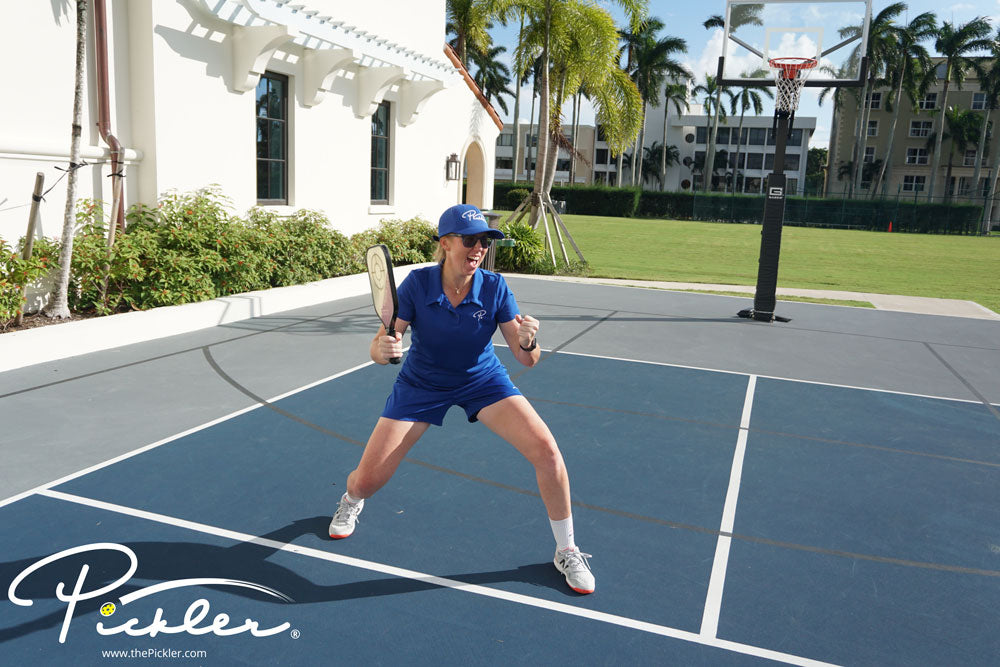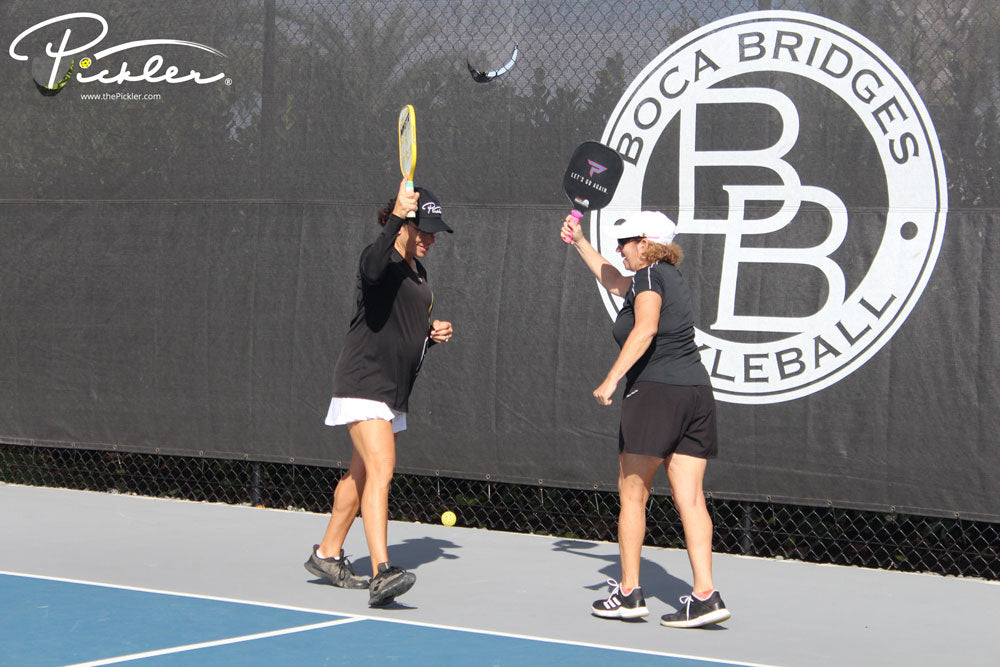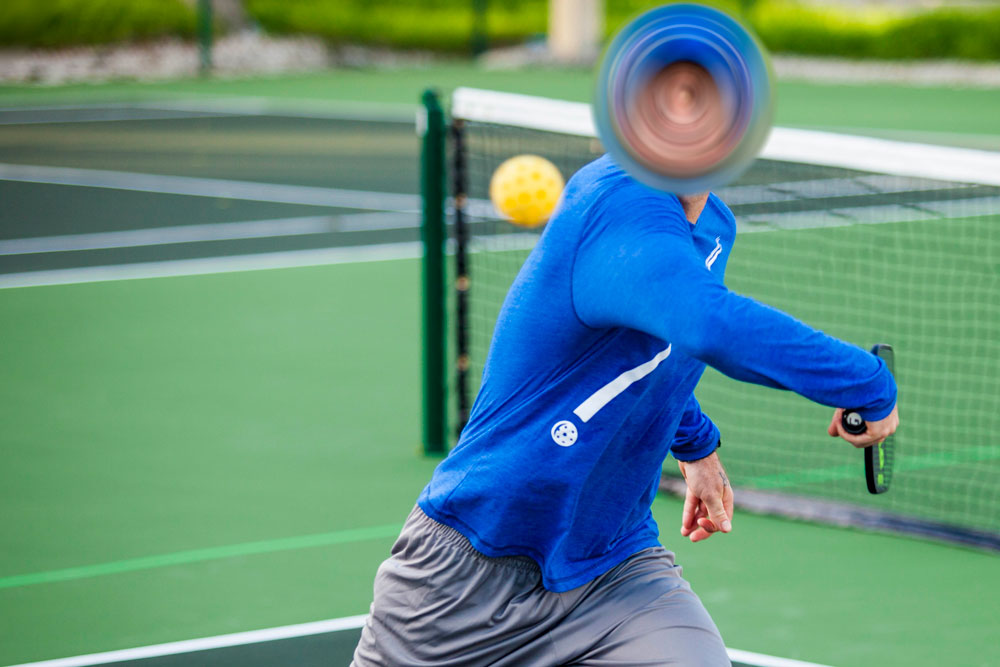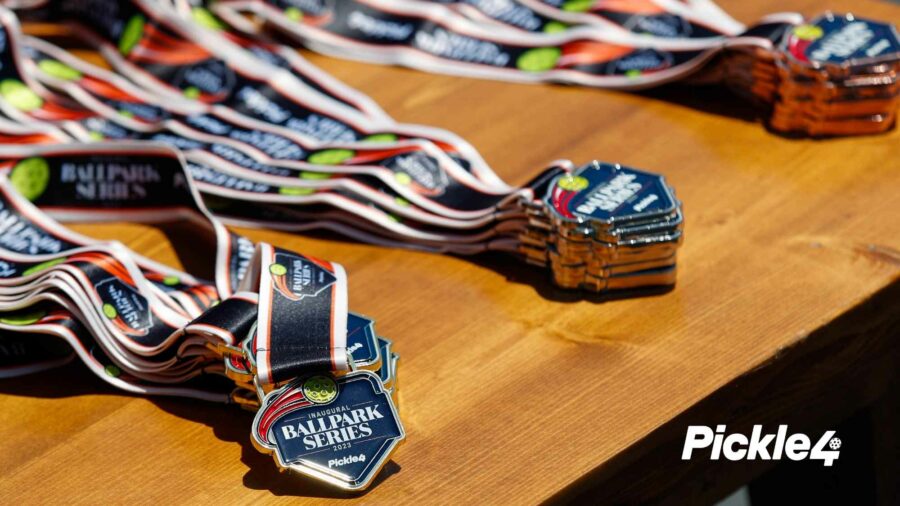Just like any sport, the sport of pickleball is as much of a mental game as it is a physical one (if not, even more so). The ability to stay mentally tough and block out the “noise” on the pickleball court can be the difference between winning and losing. These mind games are even more prevalent in pickleball, too, due to the small size of the pickleball court (which is only 44 feet long).
This is evident when watching the professional pickleball players compete. There are a variety of mind games and psychological strategies that can be seen during play, which are each used to try to gain an advantage over their opponents. Here are some common mind games that you may see when watching pro pickleball:
- Celebrating Good Shots – Pickleball pros may celebrate good shots to intimidate their opponents and show that they are in control of the match. These celebrations could be auditory outbursts of emotion—such as “C’MON!” or “ANDIAMO!”—or it could be visual celebrations like a fist pump or an extra loud paddle tap with their partner. These celebrations could even be in the form of fan engagement in order to rally a crowd behind a player or team and against the opponents.

- Manipulating the Pace of the Game – Some pickleball pros will try to control the tempo of the game by controlling the time between rallies. For instance, when a team or player has the momentum, they will typically rush back to the baseline to rush the next serve and ride the wave of the momentum. Other times, a team or player will slow the game down by walking slowly back to the baseline or slowly retrieving the pickleball between rallies.
- Stare Downs – Some pickleball pros will try to get in their opponents’ heads and start mind games by staring down their opponents after a particular rally.
-
Using Verbal Cues – Pickleball pros may use verbal cues to distract their opponents or throw them off balance (envision tennis pro John McEnroe’s verbal outbursts). Some examples of verbal cues that pickleball pros might use include:
- Talking to themselves: Pickleball pros may talk to themselves during play, repeating phrases like “focus” or “stay calm” to maintain their own composure.
- Commenting on the opponent’s play: Pro players may make comments about their opponents’ play to try to get into their heads. For example, they might say, “Wow, that was a really easy shot for you, I’m surprised you missed it,” to potentially make their opponents doubt their abilities. They may also comment on how far a pickleball lands out of bounds in order to emphasize how poor a shot was by their opponents—for instance, “WAY OUT!”
- Making comments about the score: Pro players may make comments about the score to their opponents to try to affect their mental state. For example, they might say something like, “Wow, we’re really ahead now,” to try to make their opponents feel more pressure.
- Commenting on the weather: Pro players may make comments about the weather to their opponents to try to distract them. For example, they might say, “Wow, it’s really sunny out here today,” to make their opponents feel more uncomfortable and potentially throw them off their game—especially after possibly winning a point off a lob into the sun.
- Making small talk: Pickleball pros may engage in small talk with their opponents between points to try to relax them or distract them from the game. For example, they might ask about their opponents’ families or interests.
- Playing nice: Pro players may even take the opposite tact to a stare down or negative talk and compliment their opponents. For instance, “Nice shot!” This has the effect of potentially alleviating the intensity of the opposing team, which can be effective if the opposing team likes to play at an intense level.
- Getting Confrontational – Some pickleball pros will even become argumentative on the pickleball court—for instance, after a line call. This could intimidate an opponent against making another questionable call or even cause a referee to hesitate from making a close call.
- Staying Composed – Pro players will often stay composed and maintain a poker face during play, regardless of the score or the outcome of a point (or any antics employed by their opponents, such as the ones described above). This can make it more difficult for their opponents to read their emotions and gain a psychological advantage.

These mind games on the pickleball court result in a game within the game, which can bring more nuances to the sport, particularly at the professional level. It can even make the game more interesting and engaging for the fan base, as it is another aspect of the game that can offer entertainment value.
But, these mind games are not just at the professional level. You can see these mind games at all levels and even in recreational play (think of all of the friendly banter and friendly trash talk across the pickleball court at every public park across the country!). So, it is important to be aware of the various tactics that could be employed against you on the pickleball court.
Further, although these mind games can be effective and entertaining, it is important to always heed to the culture of the sport, which is to prioritize good sportsmanship and fair play, and avoid crossing the line into unsportsmanlike behavior.




